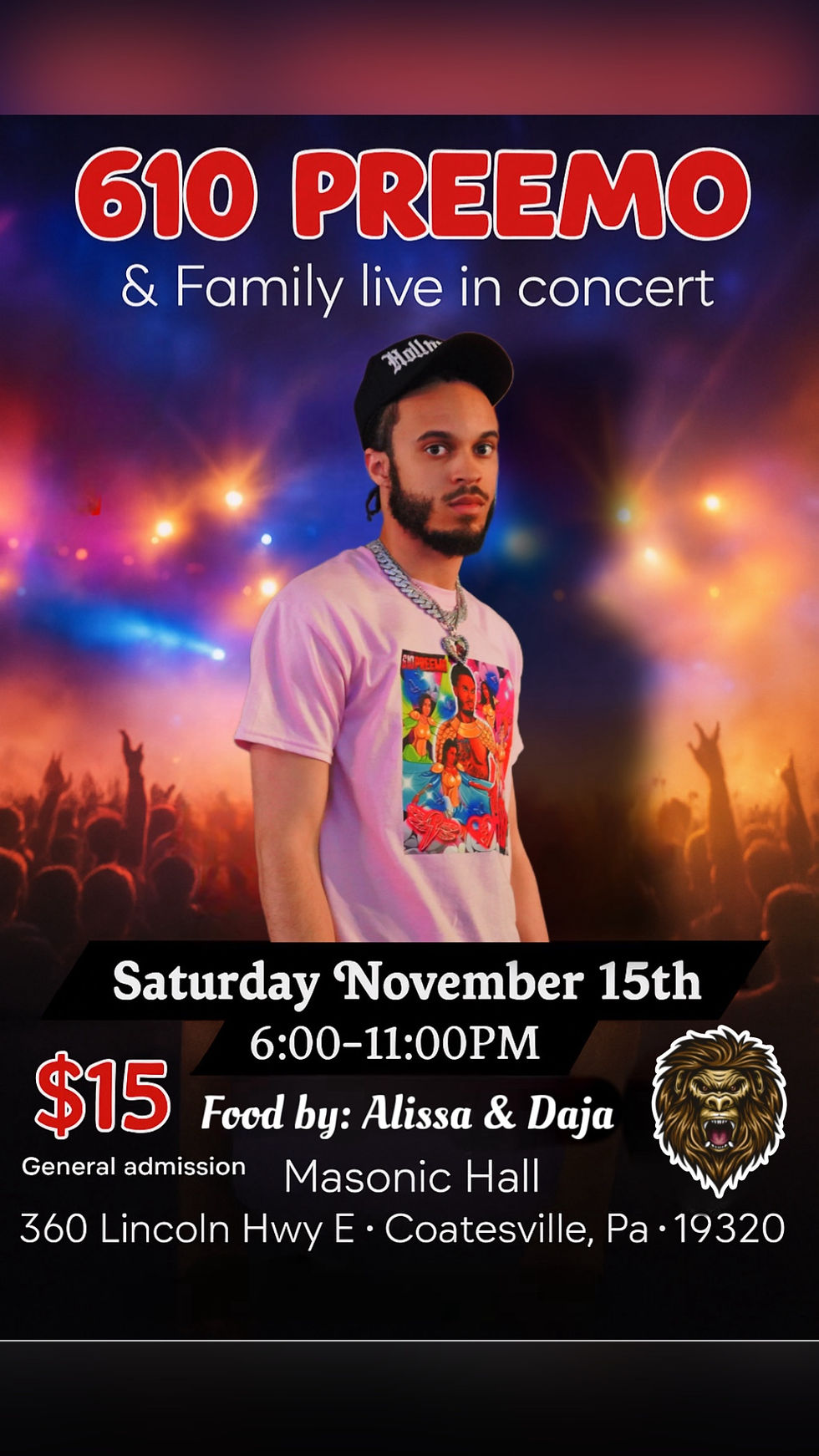
Hip Hop Fashion: From the Streets to the Runway and Beyond
- foxxman55
- Sep 11, 2025
- 4 min read
Hip hop has always been more than just music; it is a cultural movement that encompasses art, dance, and fashion. Its evolution is deeply intertwined with the world of style, making it a fascinating subject worth exploring. This journey traces back to 1977 when the New York City blackout carved a path for a cultural renaissance that would soon ignite the streets, paving the way for today's hip hop fashion phenomena.
The Birth of Hip Hop Style
In the shadows of the NYC blackout, a new cultural and musical genre was born. Communities came alive through dance and music, and with them arose a need for clothing that was not only expressive but functional. Breakdancing, a crucial element of hip hop, demanded attire that allowed for movement, comfort, and personal expression.
Many early hip hop artists began to craft their own identities through their clothing. Brands like Adidas, with their iconic tracksuits and shell-toed sneakers, became essential parts of hip hop fashion. These clothing choices were not just about style; they were forms of protest and celebration within urban environments.

Style Icons of the 90s
As hip hop progressed through the 80s and into the 90s, it produced legendary artists who became global style icons, shaping fashion trends for years to come. LL Cool J popularized the "Cool J look," characterized by baggy pants, oversized jackets, and forward-pushed caps. Similarly, 2Pac and Biggie not only influenced the music scene but also carved their niches in fashion with their signature styles.
2Pac's bandanas and colorful print shirts spoke volumes about rebellion and individuality, while Biggie's tailored suits and luxury streetwear painted a picture of success within the hip hop community. These artists didn't just promote their music; they showcased their perspectives through clothing choices, solidifying their places in the history of hip hop fashion.

Preeminent 610 is Bridging the Gap. Hip Hop Rules Fashion.
The Rise of Black Designers
With the turn of the decade, the 90s witnessed a significant surge in the number of Black designers entering the fashion industry. Key figures like Daymond John founded FUBU, which directly connected with hip hop culture. FUBU's slogan "For Us, By Us" resonated deeply, as it celebrated the individuality of Black creatives while simultaneously tapping into the burgeoning hip hop consumer base.
Other influential labels such as Phat Farm and Baby Phat emerged, showcasing the creativity of Black designers who understood both the cultural significance and commercial potential of hip hop fashion. Together, these brands built a bridge between streetwear and mainstream acceptance, serving as a powerful narrative about authenticity and representation.

Luxury Brands Embrace Hip Hop
As the new millennium approached, the influence of hip hop in fashion became undeniable. Luxury brands like Gucci and Louis Vuitton began to recognize the cultural relevance of hip hop artists and sought collaborations that would cement their place in this thriving world. Notably, Dapper Dan emerged as a visionary designer who ingeniously fused luxury logos and street style, challenging traditional fashion norms.
Virgil Abloh, known for his work with Off-White, was another transformative figure who infused high fashion with street elements, further legitimizing this intersection in the fashion landscape. His collaborations with artists and musicians defined a generation, amplifying the narrative that hip hop fashion was not just a trend but a movement.
Also noteworthy is Pharrell Williams, whose eclectic style epitomizes the fusion of hip hop with high fashion. His collaborations with various brands, especially his historic partnership with Chanel, brought hip hop aesthetics to the forefront of the luxury industry, proving that hip hop can thrive in any context.

The Corporate Co-optation of Streetwear
As hip hop fashion continued to expand, corporations began attempting to co-opt the trend. Many brands sought to tap into the authenticity and coolness of streetwear, often failing to understand or respect the culture's roots. The result was a diluted version of hip hop fashion that lost its connection to the community that birthed it.
Despite the commercialization, the spirit of hip hop fashion remains alive and well within its cultural context. The true essence can be found in the streets, music, and shared experiences of those who continue to champion individuality, creativity, and authenticity through their clothing choices.
One such brand that embodies this ethos is Preeminent 610, which aligns with the foundational values of hip hop fashion. By promoting unique styles that celebrate cultural heritage, Preeminent 610 empowers individuals to express themselves genuinely.
PreemO: A Modern Day Icon
Among the representatives of this movement is 610 PreemO, the brand ambassador for Preeminent 610. With millions of streams to his name and a starring role in the hit series "ZELLOWORLD," PreemO stands as a modern embodiment of hip hop culture. He showcases how contemporary artists can blend music and fashion to tell personal stories and connect with their audience.
Embracing the rich legacy of hip hop fashion, PreemO embodies the individuality of the movement while pushing boundaries. His bold choices and artistic vision mirror the spirit of those trailblazers before him, ensuring that the essence of hip hop fashion continues to thrive.
Join the Movement
In closing, hip hop fashion remains a vibrant and powerful form of expression that resonates with millions. From its grassroots beginnings in the streets to its current presence on global runways, the connection between culture and style is undeniable.
Let your style be your voice, whether you choose to reflect the boldness of vintage hip hop or embrace contemporary influences. Join the movement with Preeminent 610, celebrating authenticity, creativity, and individuality.
As we move forward, remember that hip hop isn't merely a genre; it’s a lifestyle—a way to express who you are. So step out, be bold, and embrace the essence of hip hop fashion in your own life. Let’s celebrate the culture together.






Comments